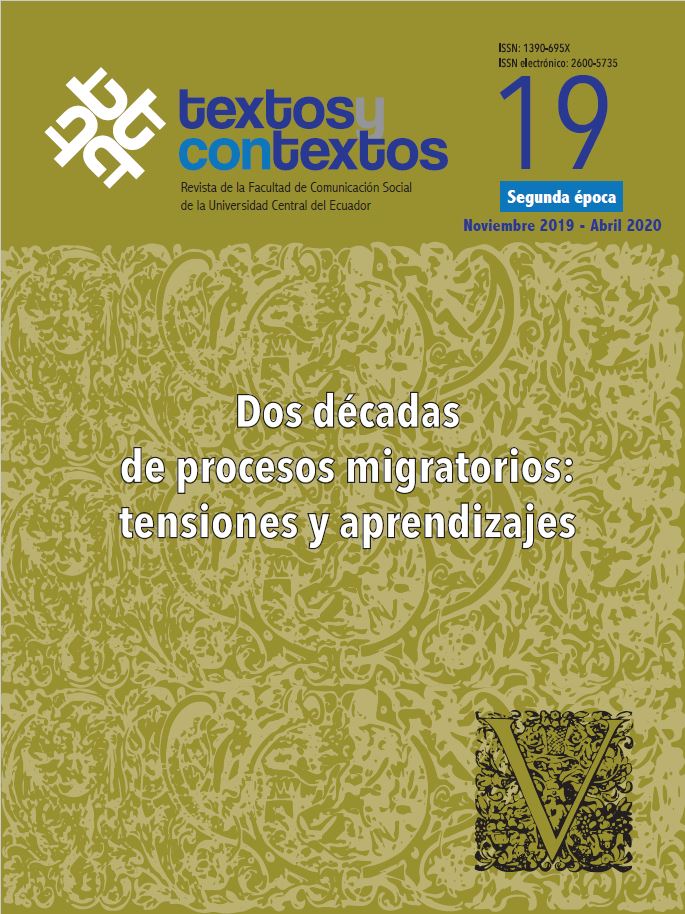Migration as a metaphor for existence
Main Article Content
Abstract
This text proposes the migration understanding as a trip which presupposes the existence. It sustains the idea that migrating from one state to another is an evolutional aspect and it occurs mainly through the language. Metaphor, as the essential vehicle to arrive to a state of higher states of consciousness. The author pursues the concept of migration with the support of Maria Zambrano’s and James Hillman’s authors who discourse the “heart metaphor”, and also establishes a dialogue with Paul Ricoeurs´ literary theory as in his book La metáfora viva. Finally, the author converses with the work of the American poet Joy Harjo, mainly by referring to Conflict resolution for holy beings, and journey to the core of Harjos speech. In this trip, she explains how poetry necessarily accompanies the habit of migrating from one state of consciousness to another, enabling us to build episteme (or knowledge) by means of strengthening our own subjectivity.
Downloads
Metrics
Article Details
References
Barrios, A. Alpert, Richard (Ram Dass) (1971). Be Here Now. Lama Foundation, San Cristobal, New Mexico.
Bachelard, Gaston. (2000) La intuición del Instante. Fondo de Cultura Económica, Méjico.
Deleuze, Gilles/ Guattari, Félix. (2000) Mil Mesetas/ Capitalismo y Esquizofrenia. Pretextos. España.
Harjo, Joy. (2015) Conflict resolution for Holy Beings. Norton and Company. New York
Hillman, James. (2001) El pensamiento del corazón. Siruela. Madrid.
Hoagland, Tony. (2019) The Art of Voice. Poetic Principles and Practice. Norton and Company. New York.
Kafka, Franz. (2012) Obras Selectas. Edimat Libros, Madrid.
Kafka, Franz. (2003) El libro del hambre. Siripus. Barcelona.
Lotman, Iuri. (1996) La semiósfera. Semiótica de la Cultura y del Texto. Ediciones Cátedra, Madrid.
Malatesta, Julián (2007) La imagen poética. Escuela de Estudios Literarios. Universidad del Valle. Colombia
Metzner, Ralph. (1987) Las grandes metáforas de la tradición sagrada. La transformación de la conciencia y la naturaleza humana. Editorial Kairós. Barcelona.
Ramos, Francisco José. (2013) PDF. “¿Cómo pensar la poesía? (poema, imagen y escritura)”, en Escritura e imagen. Vol.9: 339-357. Universidad de Puerto Rico.
Reverdy, Paul. “La Imagen Poética”. Revista El Golem. Tomado de Nueva Era. Año 1. No.4
Ricoeur, Paul. (2001) La Metáfora Viva. Ediciones Cristiandad. Madrid
Watts. Alan. (2011) On the taboo of knowing who you are. Souvenir Press. USA.
Yánez, Sophía. (2016) Puerto de Hayu Marka. Hojas y Signos, Quito.
Zambrano, María. (2002) Hacia un saber sobre el alma. Alianza Editorial. Madrid. (2007) Algunos lugares de la poesía. Editorial Trotta. Madrid.




